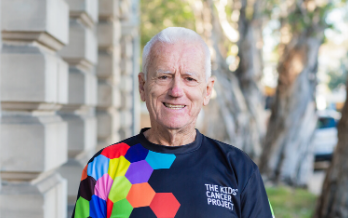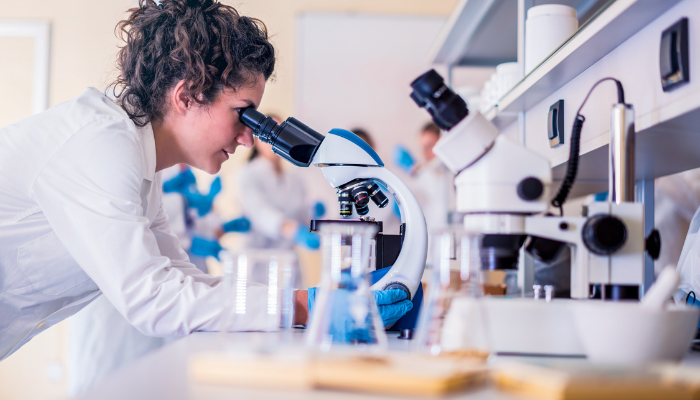Col Reynolds Fellows, Dr Kenny Ip

Recipient: Dr Kenny Chi Kin Ip
Institute: Children’s Cancer Institute
Funding: $616,945.00
Dr Kenny (Chi Kin) Ip is a molecular neuroscientist and senior research officer at the Children’s Cancer Institute who has extensive expertise in neurophysiology and functional genetics.
During his PhD, he was trained by the world-renowned embryologist Professor Patrick Tam (FRS) at CMRI to decipher the complex genetic programs that are critical for brain development. Dr Ip then led research programs at the Garvan Institute to characterise complex brain circuits that actively control metabolic perturbation. Within seven years, he has generated over 20 publications, and many of them were published in high-tier journals like Cell Metabolism, Neuron, eLife, and Development.
Motivation
My initial interest in cancer research came from my early neuroscience and developmental biology studies. I was inspired by my mentor Dr Margaret Seto-Poon (UC Berkeley) and subsequently trained by Professor Patrick Tam during my PhD to learn about how a little mistake occurring in the genetic program during early embryonic development can leave behind such a profound detrimental outcome, such as developing brain cancer.
Most people would agree that brain disease is the most devastating disease as it does not discriminate between genders and ethnic groups. This is especially true of childhood brain cancer. The impact of cancer on children is often much worse than on adults, as many young children cannot communicate effectively to their parents about how they feel during cancer treatment, and they have a much weaker physiological system to endure the cytotoxic effects of cancer treatment.
The thought of having to see children go through such a horrifying disease hurts my heart every day, especially now I’m a father myself, it makes my research even more personal. The initial motivation for me to study brain cancer was very simple, I just wanted to have a career where I know when I go to work every day, every effort and discovery that I make, will contribute a direct translational impact to improve the therapeutic outcomes for all children who suffered from brain cancer.
Developing new treatments
My project focuses on developing new treatments for a high-grade glioma (HGG) subtype that has recently been identified, known as the H3-G34R/V mutant. This mutation frequently gives rise to one of the deadliest brain tumours that affect primarily children and young adults, with an overall median survival rate of only 12 months. Unfortunately, this tumour type has an extremely poor prognosis, and currently, no dedicated clinical trials are available for these patients. The only treatment option available is to apply high-dose radiation therapy at the cerebral hemispheres, which can introduce severe long-term neurotoxic effects. Without a doubt, there is an unmet urgent need to find alternative treatment options for these patients that are both effective and at the same time have lower cytotoxic effects for these patients.
Recently, there has been increasing evidence to show that healthy nerve cells also contribute to an unexpected role in driving aggressive tumour progression in gliomas. However, the exact mechanism of how this happens is not clearly known. As a molecular neuroscientist, I will be bringing in some of the most advanced neuroscience tools and expertise to carry out comprehensive brain-network mapping experiments to identify where in the brain, and what these nerve cells are, that predominantly drive tumour progression by using our existing brain tumour models developed by Dr Maria Tsoli and Professor David Ziegler, who lead our research team.
Ultimately, my work will lead to the identification of all those tumorigenic factors that are being released by the nerve cells. I will then use this information to guide a targeted high-throughput drug screening program in collaboration with our world-class facility the Drug Discovery Centre at the Children’s Cancer Institute to find the most effective anti-cancer drugs that are highly tumour-specific but safe for neuron activity to treat these H3-G34R/V patients.
Rare Cancer Research
Paediatric high-grade gliomas (pHGG) are the deadliest brain tumours affecting both children and young adults. The exact developmental mechanism of how this tumour forms and progresses at such an aggressive speed is still not known, but genetic studies have demonstrated that recurrent somatic mutation at the specific histone H3 variant (the protein that maintains good DNA structure) is one of the key drivers for tumour growth.
As mentioned, the G34R/V mutant is one of the most recently identified pHGG subtypes and is extremely deadly to young patients. This subtype has also just been included by the World Health Organization as a new central nervous system grade 4 (most aggressive) tumour type, urging immediate action to carry out basic and clinical research to find a cure for this disease. This tumour type occurs frequently in the cerebellum, the largest part of the brain that is heavily innervated with nerves that are critical for maintaining a broad range of physiological functions (etc. movement, emotion, cognition, and energy metabolism).
Currently, the only available treatment is to apply high-dose radiation therapy at the cerebral hemispheres, and as can be imagined, this can introduce significant side effects. The overall median survival rate of this tumour is about 12 months and there are no dedicated clinical trials available for these patients. That is the main reason why my project will play such a significant role in the field by filling this gap through comprehensive research studies to identify new treatment options.
Important Research
My program proposes the use of advanced neuroscience research to guide a high throughput drug screening program to develop new treatment plans. The project outcome is highly significant as it will ultimately provide new treatment options for young brain cancer patients apart from radiation therapy.
This research aims not only to find new drugs to save patients but also to provide in-depth information on how the new drugs work and whether they damage other brain parts. The information generated from my program will be extremely beneficial for supporting patients in post-treatment care as the data will be made publicly available to help clinicians develop a personalised management program, which will vastly improve the lifespan of children with brain cancer.
This is an extremely important project. On completion, it will generate the quantum of data required for the initiation of the first comprehensive clinical trial program for children with this type of brain tumour. Throughout the program, I will be working closely with Professor David Ziegler the head of clinical trials at the Kids Cancer Centre in Sydney. Professor Ziegler has previously and successfully initiated four clinical trial programs for brain cancer, and together we will be able to combine our expertise to translate bench science directly to bedside to have the highest clinical impact potential.
Col Reynolds Fellow
I am immensely honoured to be awarded as an inaugural recipient of the Col Reynolds Fellowship, and I’m humbled by the community’s trust (both the scientific community and the public), recognition, and belief in bringing a cure to end childhood brain cancer through my project.
As many of us may know, a scientific career is the most competitive career among all professions due to the nature of the limited grant and government funding available. To be awarded this Fellowship will not only allow me to continue to work hard to search for a cure for brain cancer; it will also allow me to bring in new concepts and technologies from the field of neuroscience that can increase our toolbox to study different types of brain cancers, to give a better chance to identify new treatments.
I’m grateful to be able to help fight cancer and I take pride in my work. I will never give up hope in finding new treatments for young brain cancer patients. The ultimate goal of my research program is to not only find a treatment that is highly effective but also ensure it has low toxicity to help preserve a healthy quality of life for these young patients from this devastating cancer.
Thank You
I would like to express my deepest gratitude to The Kids’ Cancer Project’s community of donors who gave generously with their money, time, and trust to support my research program. Every dollar donated has enabled scientists like me to purchase the reagents and tools that are needed to carry out high-quality research in Australia. Because of their support, every cent donated has brought us one step closer to finding a cure to save these young children’s lives from brain cancer!
Lastly, I would also like to acknowledge The Kids’ Cancer Project community of volunteers, clinicians, and basic researchers for all the hard work they did to make this funding happen. I sincerely believe that when we work together, as a community, through collaboration under one mission one hope we can defeat childhood cancers.
Find out more about the Col Reynolds Fellowship
With an investment of over $7.6 million, The Kids’ Cancer Project is ensuring that some of the best and brightest young researchers in Australia can further their careers and most importantly, their impact on childhood cancer research.


Read more from past recipients
From a field of outstanding candidates across Australia, The Kids’ Cancer Project has funded the next generation of childhood cancer researchers. Their science-backed research is sure to deliver breakthroughs across a range of areas relating to childhood cancer.

